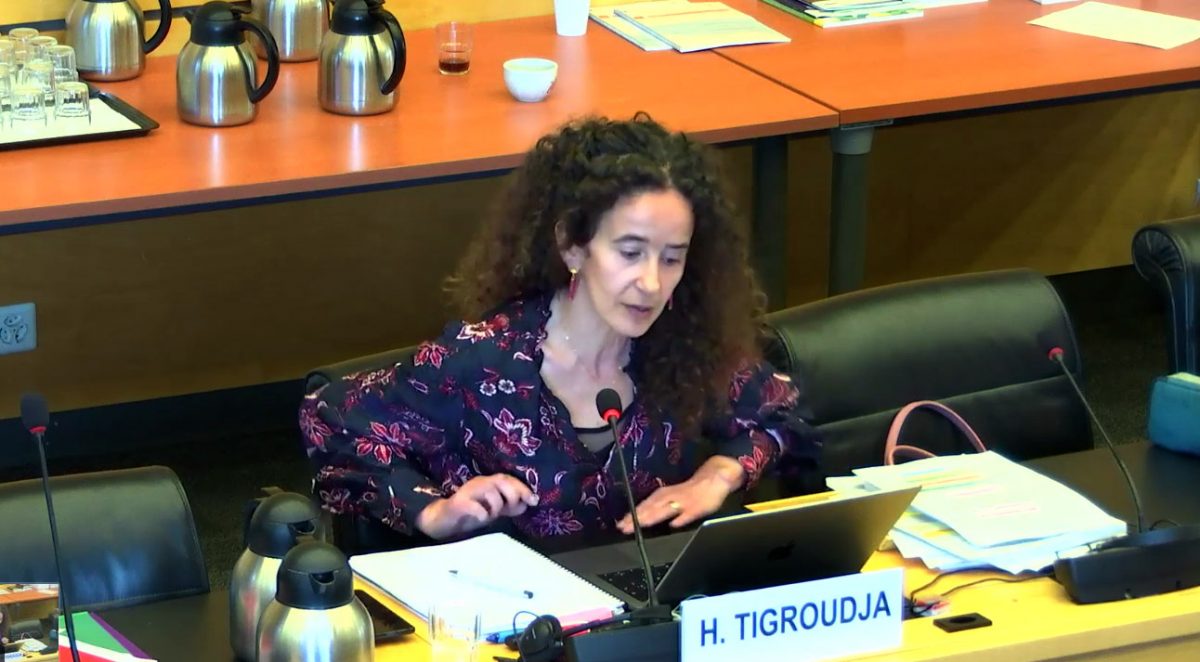The UN Human Rights Committee (HRC) (CCPR) has called on Guyana to take measures to safeguard the independence of the judiciary and to address the backlog of cases in the system.
In its concluding observations, which the Guyana Government said did not incorporate its reservations, the HRC said it is concerned about the role of the executive and the legislature in the appointment of members of the judiciary, particularly the appointment of the Chancellor and Chief Justice who are preferred directly by the President after obtaining the agreement of the leader of the opposition according to Article 127 of the Constitution, and the appointment of judges by the President after consultation with the Judicial Service Commission (JSC).
The Committee, sitting in Geneva, Switzerland, said it is also concerned that the JSC is appointed by the President after consultation with the leader of the opposition. The Committee is further concerned about the practice of appointing “acting judges”, which does not guarantee the independence of the judiciary or its competence.
“While noting the information provided by the State party on the progress made in reducing the number of civil cases, the Committee remains concerned about the considerable backlog of cases particularly of criminal cases resulting in lengthy pretrial detention, exacerbated by delays in the appointment of judges. Furthermore, the Committee is concerned about reports of limited access to free legal aid for people living in rural areas and members of the indigenous communities…”, the concluding observations said.
The HRC, which presides over the UN Covenant on Civil and Political Rights (CCPR), called on Guyana to take measures necessary to safeguard the independence and impartiality of the judiciary, including by ensuring that the procedures for the selection, appointment, promotion, sanction, and removal of judges are “transparent and impartial and comply with the Covenant and relevant international standards, including the Basic Principles on the Independence of the Judiciary”.
The UN committee also wants Guyana to adopt a comprehensive strategy to address the backlog of cases throughout the judiciary, particularly criminal cases, and ensure the right to a fair trial without undue delay, in accordance with article 14 of the Covenant and the Committee’s general comment No. 32 (2007) on the right to equality before courts and tribunals and to a fair trial.
Further, it wants Guyana to expand the provision of free legal aid by strengthening the financial and human capacity of the Legal Aid Centres, to facilitate access to justice for all, including to those living in rural areas and to indigenous communities.
In its response to the concluding observations, Guyana said that it went to great efforts to explain how the JSC is appointed.
“The Committee has deliberately misconstrued its interpretation of the appointment of the JSC which is executed by the President. This appointment is ceremonial whereas the actual selection of the members of the Judicial Service Commission is rooted in a broad-based consultative process at numerous levels of society including through parliamentary processes and the engagement of civil society actors within the legal sphere”, the explanation said.
The state party, whose main presenter was Minister of Parliamentary Affairs, Gail Teixeira, said it went to pains to explain how the Judicial Service Commission recommends and how Judges are appointed, including giving an example of if a President disagrees with a nominee by the JSC what takes place. Once the JSC reviews the President’s written concerns and is still of the view that the said Judge be appointed, it advises the President again and he has no choice but to appoint in accordance with the constitution.
Further, the State party said it is not aware of any appointments of “acting judges”. This is simply not a practice of the State party, nor was it raised in the review process.
While the Chancellor and Chief Justice may be acting in those positions, their substantive appointment as judges in the Supreme Court of Guyana is not temporary nor are they to be considered “acting” judges, Guyana said.
The manner of confirmation of the appointments of the Chancellor and Chief Justice may also be reviewed under the upcoming constitutional reform process, Guyana said. For nearly two years, President Irfaan Ali has declined to consider a proposal by the Leader of the Opposition, Aubrey Norton on the confirming of a Chancellor and a Chief Justice.
Guyana also asserted that there is no limited access to legal aid services for persons from hinterland regions.
“The State party went to great pains to explain how the Government supports the Legal Aid Clinic, the Linden Legal Aid Clinic and the Legal Pro-Bono 500 initiative.
“The state party provided information on (the) increase in the government’s annual budgetary subvention to the Legal Aid Clinic and the Linden Aid Clinic. Both of which are independent of the government”, Guyana said.
Guyana’s delegation appeared virtually for three days of questioning over its periodic report and a wide range of topics was discussed.






